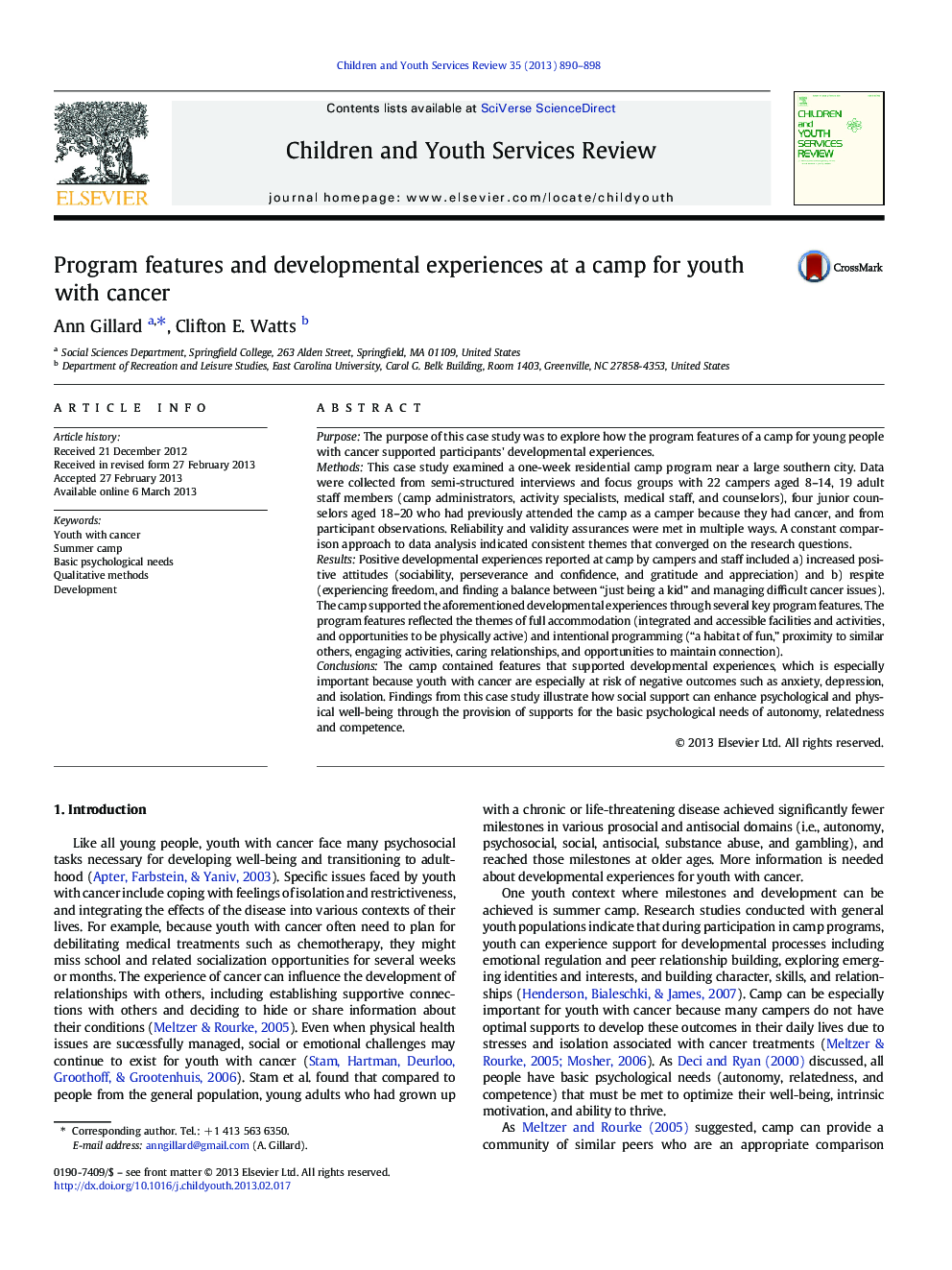| Article ID | Journal | Published Year | Pages | File Type |
|---|---|---|---|---|
| 346182 | Children and Youth Services Review | 2013 | 9 Pages |
•We conducted a case study of a camp for youth with cancer.•Developmental experiences included increased positive attitudes and respite.•Program features included full accommodation and intentional programming.•Camp can support developmental experiences through provision of program features.
PurposeThe purpose of this case study was to explore how the program features of a camp for young people with cancer supported participants' developmental experiences.MethodsThis case study examined a one-week residential camp program near a large southern city. Data were collected from semi-structured interviews and focus groups with 22 campers aged 8–14, 19 adult staff members (camp administrators, activity specialists, medical staff, and counselors), four junior counselors aged 18–20 who had previously attended the camp as a camper because they had cancer, and from participant observations. Reliability and validity assurances were met in multiple ways. A constant comparison approach to data analysis indicated consistent themes that converged on the research questions.ResultsPositive developmental experiences reported at camp by campers and staff included a) increased positive attitudes (sociability, perseverance and confidence, and gratitude and appreciation) and b) respite (experiencing freedom, and finding a balance between “just being a kid” and managing difficult cancer issues). The camp supported the aforementioned developmental experiences through several key program features. The program features reflected the themes of full accommodation (integrated and accessible facilities and activities, and opportunities to be physically active) and intentional programming (“a habitat of fun,” proximity to similar others, engaging activities, caring relationships, and opportunities to maintain connection).ConclusionsThe camp contained features that supported developmental experiences, which is especially important because youth with cancer are especially at risk of negative outcomes such as anxiety, depression, and isolation. Findings from this case study illustrate how social support can enhance psychological and physical well-being through the provision of supports for the basic psychological needs of autonomy, relatedness and competence.
